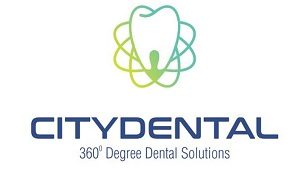
The Temporomandibular Joint (TMJ) is the joint where the lower jaw is connected to the skull. Any problems of the jaw joint, jaw muscles and adjoining tissues fall under the category of Temporomandibular Disorder (TMD). Determining the causes for these disorders can be difficult, but trauma, bite or dental problems, stress and teeth clenching habits seem to be the top factors. It is quite a common problem in India where more than One Crore people are diagnosed with one of the TMDs every year.
However, a recent study on a group of TMD patients showed the possibility of the fact that these jaw disorders are somehow connected with other bone and muscle-related disorders of the human body.
Out of all the subjects of the survey, it was revealed that two-thirds were suffering from three or more other health disorders. The most common disorders were:
Fibromyalgia: widespread muscular and joint pain over the body
Chronic fatigue syndrome: extreme levels of physical and mental fatigue
Rheumatoid arthritis: inflammation, swelling, and pain in and around the joints and body organs
Chronic headaches: frequent headaches for almost 15 days. Pain radiating from TMJ to neck, tempral region of the skull.
Sometime there will be localised trigger points, due to inflammation of muscles associated with a joint. Clicking /popping sound from joint ..painfull opening while chewing,, continuous discomfort in the TMJ area, these are indicative of a joint problem.
The research on this theory is still in progress. The outcome of this research might bring about a drastic change in the way TMD and these other health problems are treated and their medications.
Currently, there are two basic ways of treating TMD:
Surgical Treatment:
- The problems in the jaw structure are rectified via invasive and aggressive surgery.
- The risks in surgical treatments are higher as the incisions are always prone to infections
- The results of TMD surgery are also quite average.
- This treatment consists of non-invasive techniques which include massaging, exercising, medication and changing dietary habits.
- Guiding soft/hard splints
- TMJ splints
- The patients as asked to perform heat or ice press over the swelling to reduce pain.
- Physical therapists guide patients through a set of exercises to reduce muscle spasms and stiffness
- Special diets are provided with foods that are harmless and cause less pressure while chewing.
- Medications are usually provided to relieve pain and tenderness of the jaw.
